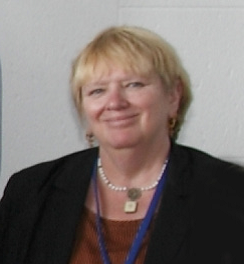Educational reform occupies a significant role in the national development strategies of the members of the Gulf Cooperation Council (GCC). The initiation of such reforms is driven by the desire to foster knowledge-based economies throughout the GCC region as well as to prepare young nationals for productive citizenship and employment. However, as they pursue agendas to both preserve indigenous culture and embrace key aspects of globalization, educational leaders and policy makers face challenges and opportunities unlike those faced by other regions. Indeed, sizeable financial investment by governmental leaders, deregulation of private education, an increasing national youth population, and the presence of large expatriate communities has led to the development of educational systems unlike most others in the world.
3 DAYS / 12 Workshops
MORE THAN 300 ACADEMIC PAPERS
Recent massive educational reconfigurations have resulted in new pedagogies at the primary, secondary, and tertiary levels; new educational pathways for both nationals and expatriates; new partnerships with foreign educational institutions; and new challenges to the preservation of indigenous education. A challenge in understanding the current educational reality in the GCC is the diversity of reform models. For example, a key factor underlying the rapidity of the current educational reform efforts is the increasing reliance on foreign educators and educational institutions to help recreate educational systems. In Bahrain, Qatar, and the United Arab Emirates, much of the expansion of their educational systems has been through the founding of international branch campuses of foreign universities, such as Ireland's Royal College of Surgeons in Bahrain and Texas A&M University in Qatar; similarly in the K-12 sector, many GCC nations have contracted with or allowed entry to foreign education providers to replicate primary and secondary level programs and practices in their systems. Indeed, in Dubai there are now 12 different national curricula being offered at the secondary level and 13 national curricula at the tertiary level. Saudi Arabia and Oman have engaged in an array of curricular and research partnerships with foreign universities to help build their new educational institutions. Even local institutions, such as Zayed University in the UAE, are pursuing accreditation from quality assurance agencies in other nations. Moreover, many of the students attend courses taught in a language other than their mother tongue (most schools now operate exclusively in English). The reliance on the experience and intellectual resources of foreign education providers leads to questions of whether the reforms are innovative in reality as well as rhetoric, and whether they are oriented towards the effective development of indigenous human capital and therefore the future success of the economic and social structures of the GCC or simply rooted in past experiences of other nations. A growing number of policy-oriented reports dealing with human resource development and national competitiveness discuss the impact of educational reform and the importance of effective transformation of teaching and learning in the GCC, as well as other nations. The World Bank's report, The Road Not Traveled: Education Reform in the Middle East and North Africa tackled questions concerning major investment and minimal results in the education sectors throughout the MENA region. Indeed, economists have begun to identify the long-term costs of poorly designed or mismanaged educational reform efforts worldwide (see e.g., The High Cost of Low Educational Performance: The Long-run Impact of Improving PISA Outcomes). Further, the UNDP's Arab Human Development Reports and the two Arab World Competitiveness Reports speak to education-related issues at varied levels of specificity and discuss matters that relate directly to the impacts of failing to develop a nation's human capital for the knowledge economy. Moreover, the World Economic Forum's annual Global Competitiveness Report uses educational attainment and educational capacity in their national competitiveness assessments. While these reports do not fully engage the research issues of adaptation and impact to be explored in this workshop, they nevertheless suggest the context against which many of the questions within the workshop papers can be framed. While there is a growing recognition of the need to assess the performance of educational systems, limited data makes it difficult to assess the past performance of student achievement throughout the Gulf region. However, many nations have recently begun to participate in international assessments such as the Trends in International Mathematics and Science Study (TIMSS), which compares the learning achievement of students in different grades among participating nations. While the recent data evidences the need for further enhancing the learning experience of students throughout the Gulf, it is important to note that new data is becoming available; thus, allowing groups such as McKinsey & Company to include GCC countries in international education research like the 2007 study, How the World's Best Performing School Systems Come Out on Top . Yet, research about education in the GCC remains limited and there is little focus on the impact of reforms on students. This workshop encourages the development of papers focused on the interaction between educational reform and students. More research is needed to understand how reforms affect the student experience, how students navigate the evolving education systems, which students benefit from the reforms, how and what students learn, whether the reforms are producing graduates who contribute to the long-term development of the region, and how changing demographics affect with the educational reforms. For example, students within the region were once primarily GCC nationals, but the expansion of private higher education and the local workforce has fostered a significant increase in the number of expatriates pursuing their education within the region as well. The choice of institutional model, the differing engagement and commitment of international partners and the presence or absence of longer-term thinking about sustainability and systems of education raise issues of public policy, the contextualization and adaptation of practice and the cultural dimensions of these reforms. While there are many prescriptive studies about the importance of educational reform to the future of the GCC nations, there is little systematic research supporting the kind of monitoring and measurement of impact based on criteria encompassing economic, social and cultural considerations that is key to the development of effective educational systems. The intensity of reform activity, moreover, provides ample evidence for modeling the questions, suggesting important areas of analysis that will bring together public policy objectives and results in the implementation of reforms and identifying key indicators for measurement and review. This workshop invites scholars of diverse background to explore the full spectrum of issues that relate to educational reform in the GCC, particularly in relation to the student experience. Through the lens of national long-term strategies, the participants will be asked to consider their research questions in terms of the potential for economic, social and cultural change as well as to identify core challenges that exist in terms of achieving the stated reform goals. Workshop organizers welcome the submission of critical and empirical papers focused on topics related to the following suggested research areas. However, papers that fall within this topic, but not directly captured in the following three areas are also welcome.

